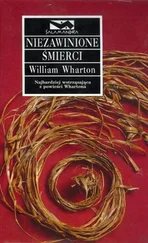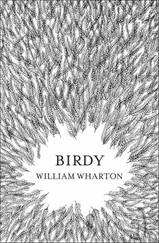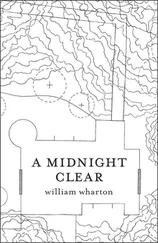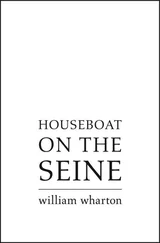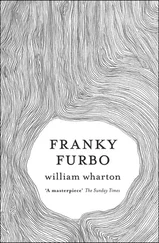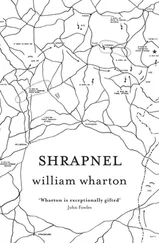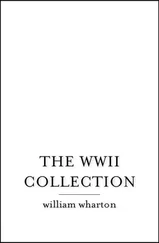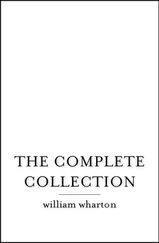The glow of the sun is still hidden by the eastern edge of our valley-bowl. There are no clouds. It’s so empty, one could easily wonder if there ever had been, ever would be a breath, a breeze again.
I do my usual thing, the summer ritual, standing on tiptoe, reaching up high as I can, pulling myself out of myself, trying to let some of that glorious empty sky come into me. In the interest of my sleeping family and the neighbors, I repress the desire for a grunting howl.
With one boot toe I kick loose three small, flat stones from the dam surface, two smooth, one ragged. I pick them up; they feel like ice even through my leather gloves. The first, the ragged one, I throw full-force directly down at the ice. I’m standing now on the small wooden platform from which, in summers, I slip quietly into the water for my after-run-before-breakfast swim.
Those summer mornings, I slide in quietly so as not to disturb the fishermen halfway around the pond. This morning, the platform glistens with ice crystals, but doesn’t seem slippery under my boots. The stone glances from the ice, making a small crazed dent, then bounces and skims another thirty or forty feet. The entire pond surface screeches and echoes from edge to edge, hallowed, hollow, deep-throated. A scientist friend told me once how the crackling howling sound is due to ice cracking along the surface faster than the speed of sound, so it causes a minisonic boom. That’s hard to believe, but it is a magic sound.
Holding onto an overhanging tree branch, I ease one foot over the edge from my platform to test the ice. It cracks slightly, the cracks spread crazily in all directions away from my toe. The ice appears to be about an inch or so thick. I take one of the smooth stones, cock my arm and skim it underhand across the incredibly water-clear ice. It bounces, slides; almost without friction, seemingly endlessly, accompanied by echoing reverberations of the ice. It continues, until, almost out of sight, it enters the cattails, marshland and reeds at the far end of the pond, then stops against one of the domed muskrat dens out there.
I’m about ready to skim the last stone, feeling it icy cold, smooth, sucking heat through my gloves, when the sun begins to glow white fire over the eastern edge of our valley. It shines almost pure white, like a communion wafer painted by a Spanish eighteenth-century painter.
This is time, happening. I can feel it passing through me. When one thinks about time, and I do too much; it’s part of what makes me a philosopher I guess; but when one thinks about it, it’s the most mysterious phenomenon we know.
We try to define it with clocks and calendars which are, more or less, based on movements of sun, earth and moon, but that’s only measuring. All we can really guess about time is it’s probably related to space and matter, whatever they are. If space and matter just became, it’s when time began. But time can’t begin because ‘begin’ is a time word, beginning-ending.
But this sun seeming to come over those hills, time or not, is practically pure light, cutting through ninety-three million miles, the source of virtually all earth’s energy.
I feel it already warm on my cold face before it’s halfway over the hill. It lights my soul. I put the last stone back in my pocket, take off my gloves, allowing my hands to be healed by these magic rays. I close my eyes, face the sun directly. I can feel, see, the red insides of my eyelids lighten; redden; warm with the blush of life. I want to hold my breath or sing; dance; something, some way to say thanks.
Instead I put my gloves back on, open my eyes and watch till the sun is finally detached from the earth, free-floating, a heavenly body again, giving us all for nothing. I vow to express my thanks by showing love for my loved ones. I wish I could somehow transmit to Lor, to the kids, my intense joy in them, the way they are. But dumb events, happenings, keep getting in the way, blocking my true feelings. But I’m going to try.
But first I want to walk, to hear, feel the crunch of frozen grasses under my feet. I walk around the pond toward the Rousseaus’. The trees are coated with ice, thick, clear, natural varnish, crackling in the sunlight as rounded prisms, a myriad of colors reflected from hoarfrost on the ground.
Last year’s blackberries, most still unpicked, now dried, hardened on the frozen bushes, are, each one, surrounded, enveloped in an irregular-shaped, perfectly clear ball of ice, like insects caught in amber. They hang their heads the same as they did in summer when filled with sun-sweetened purple juices.
I turn and look back over the pond to see our mill reflected, frozen, in the still ice. Even on a perfectly breezeless day in spring or summer it is never so completely mirrored. It has the look of someone in a tintype, long dead.
I stare transfixed by this temporal transmutation, then stamp my chilling feet and start back, jogging lumpishly along the top of the dam to our mill. I’m ready for this year’s Christmas Eve washup. I’m having my two daughters arrive today, I want to look my best, which isn’t much, but what I’ve got, what I am. Oh how I wish I could be different, be what Lor wants, what the kids want. It’s a terrible feeling inside when you’re seen as a ‘flake’, a ‘wimp’ by others when you’re personally convinced you’re not one.
Everybody’s still asleep. I turn up the water to heat again. I strip down to my long johns. The water, already warm, heats quickly. The room temperature is now seventeen degrees. I pull back the drapes on our east window to let in the sunlight. I pour hot water into the washbowl, regulate it to just right with cold water from the pitcher. I wash my face, scrub soap into my hair. I hang my head over the sink, pour the rest of the cold water from the pitcher over my hair to rinse it. If I weren’t completely awake, aware, before, I am now.
Then I strip off the top part of my long johns and do a good soaping and rinsing off of my whole upper body, not just under the arms. I scrub up a good lather in the hair on my chest, arms and back.
I dry vigorously with a towel, then strip off the bottoms to the long johns, scrub all my vital parts. I actually lean over the bowl on our table to let them float in the water so I can do the job properly. I think this part of a man has less density, floats more easily, than other parts. It should, there are no bones, despite romantic claims to the contrary. I stare at these complicated organs of mine and wonder what music they should play to be heard. I rinse and towel myself off again, pull the long johns back on, mostly for Ben’s sake. He’s at an age where nudity bothers him. He even goes into the cold toilet room to dress. The new heater in there might save him from pneumonia.
Now I put the bowl on the floor and the towel beside it. One at a time, I carefully wash my toes. No wonder the washing of feet is such an intrinsic symbol for so many religions. There’s such comfort in it.
I resist overstimulating a minor case of athlete’s foot on my left foot between the little and next toe. No sense starting something.
I carefully dry each foot and slide on the socks, the ones I washed last night, along with my underpants. I’d hung them on the mantel to dry. They’re somewhat crinkly stiff, but still soft and warm. There are some small luxuries in life, hard to describe, but which give it texture, and for me, having washed the socks and underwear by hand, myself, drying them by a fire I kept burning all night, makes it a better, deeper experience. I’ve got to be careful not to try forcing the ones I love to love the things, the ways of living, I love. It’s an easy mistake to make. It might be called the philosopher’s folly, or maybe everybody’s folly. It would be so great if we could show our love by enjoying those we love for what they are, not what we want them to be. It would be the ultimate mutual emancipation.
Читать дальше

